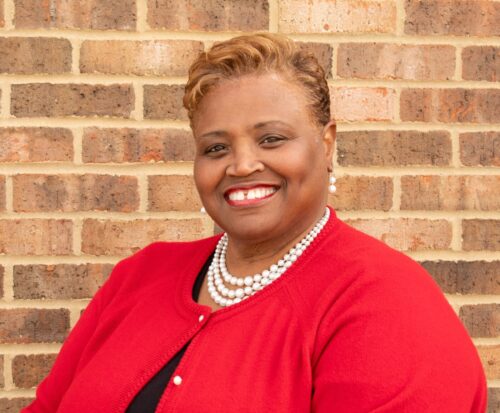In honor of Alfreda Rooks being named Women United’s 2024 Washtenaw Woman of the Year, we sat down with her to discuss her experiences, passions and motivations. Alfreda is the director of community health services at Michigan Medicine where she leads efforts to improve equity in healthcare and address the social determinants of health. Alfreda has also been the co-chair of the U-M United Way campaign for the last three years and has been an active volunteer for numerous non-profit organizations.
Below we talk to Alfreda who will be celebrated at the Power of the Purse event on March 20, 2024, for her commitment to community, accomplishments in business innovation, and her impact across Washtenaw County.
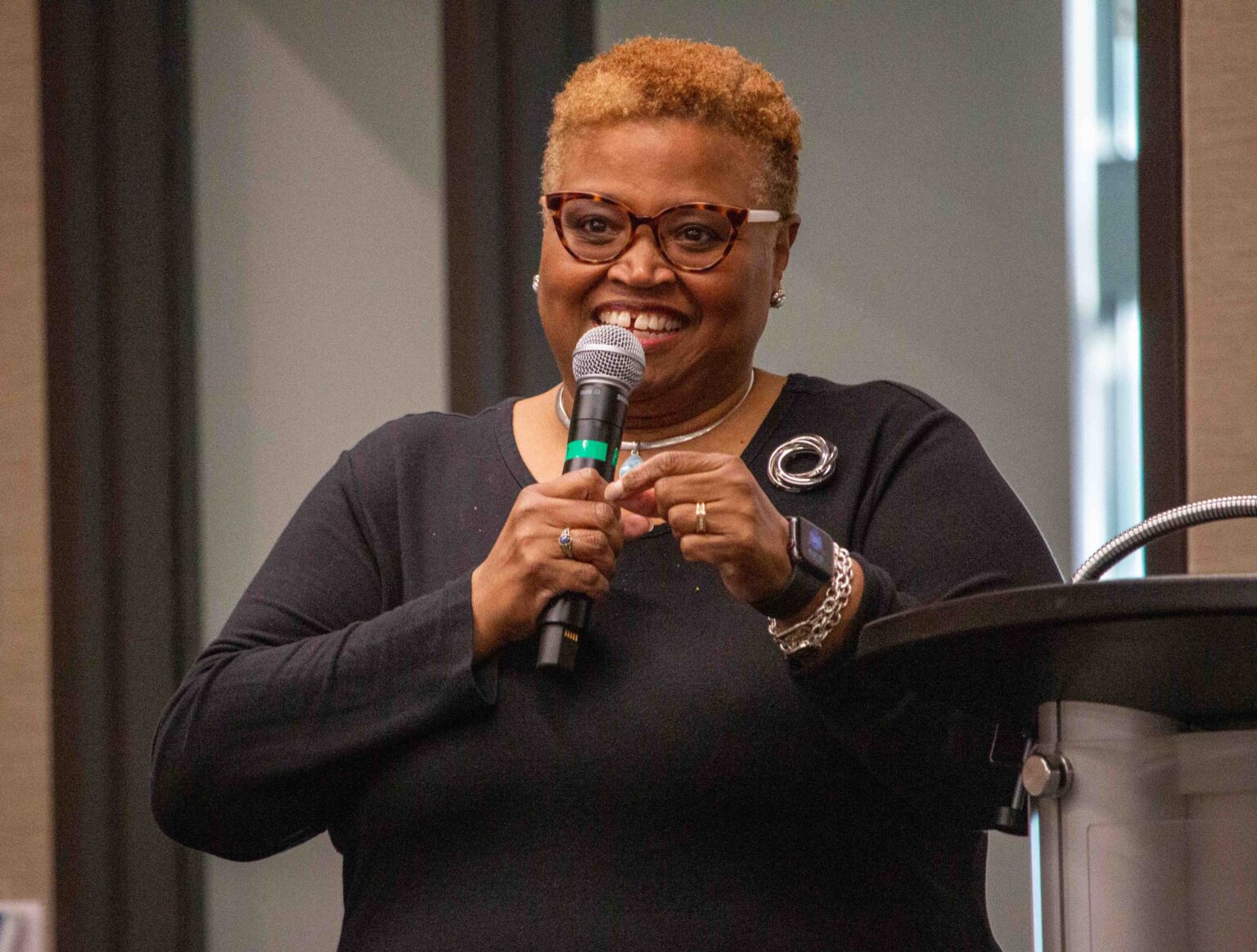
Alfreda, you are a champion for community health. Can you describe your role and how long you have been working in the field?
I’ve been with Michigan Medicine for 35 years. For 25 of those years, I’ve been with community health services. I enjoy working with, learning from and listening to community and really trying to find innovative ideas on how we can address the social determinants of health or social needs of communities and the people that we serve.
That open dialogue with community members is so important. Can you tell us more about how you been able to invite community members to the table and learn from them?
With everything that we do we listen and invite community in. We are reviving our Health Cafes for folks who live in low-income housing and affordable housing in Ypsilanti. Health Cafes are informal conversations with healthcare providers. We have a partnership with the Ann Arbor Association of Black Nurses and Black Nursing Sorority, Chi Eta Phi. They look like folks who live in the community, they come in and they have conversations. We just played Health Jeopardy. It’s a lot of laughter, a lot of “Oh, I didn’t know that” and a lot of tangents. We hear what the community members are saying, and where the gaps are through the questions they are asking. From that we learn other things we need to do and then we always ask folks at the end, “What else do you want to know?”
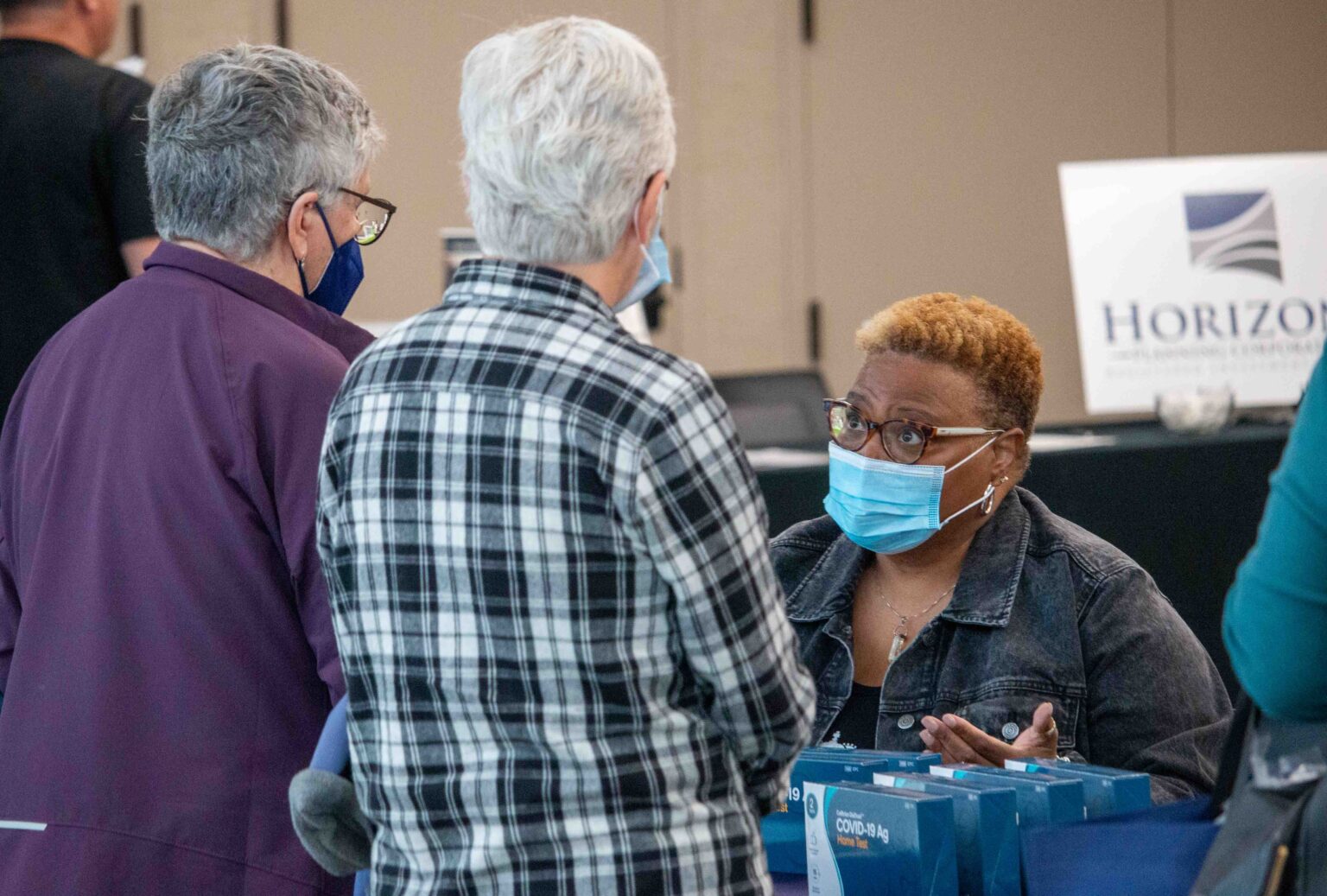
Speaking of black women in the medical field, you recently shared a LinkedIn post about the “Superwoman Schema” and the negative mental health effects and increased stress the “strong Black woman” stereotype causes. Do you have any advice for Black women to combat these negative health outcomes?
I would strongly encourage them to do what I did, which is to take off those boots, take off that little leotard because it’s tight and bunches up and just be your authentic self. As women of color, particularly black women, we are so used to having to handle so many things all at the same time. We are supposed to work every day, support our teams at work, then we have to come home and take care of the house, the husband, the kids, the partner and anyone else in our household. You still are mother, daughter, sister, cousin, aunt, niece, friend and each of those comes with a different group of people that need your support. One of the things that I really gave myself permission to do is to not be everybody’s end-all-be-all, and just be me. Sometimes it’s okay to say, “Would love to, but can’t.” I always say that it is a gentle no. If we don’t learn that gentle no, then we feel guilty and that creates more stress. You can’t relax thinking, “I should be doing this, I should be doing that.” It’s okay to pour into yourself in the same way that you pour into others. There is a book that I give to the women on my team, it is out of print now called “Oil for Your Lamp: Women Taking Care of Themselves” by Lisa Hammond and BJ Gallagher, from Simple Truths. I gave the book to them because just about every woman that is on my team is giving everything— because they really enjoy what they do, and so I see this as my opportunity to say, slow down. Life is too short.
Have any women in your life inspired you or helped guide you on the path to your ‘gentle no’?
I come from this amazing group of women who have been role models and mentors and just loved on me, believed in me and supported me. But also, when needed brought me back to reality and corrected me. They were examples of balance and helped me understand what balance means. Especially watching them when we get together for family reunions and we would stay up until three or four in the morning talking or cooking— and then we are back up eight o’ clock making breakfast for everybody who did get to sleep. They loved it and they did it because of that love. Love energizes you to do things for people that you care about. But I did say, “Okay, if I do this for my family, I can’t do this in my workplace too, because if I do, I’ll use myself up.” All things in moderation and balance so I can give to both.
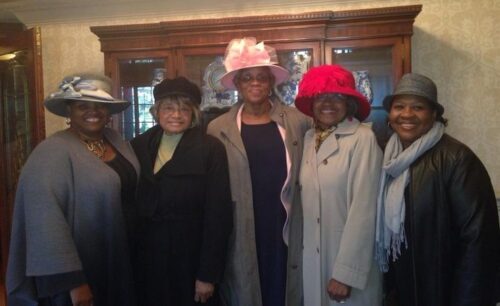
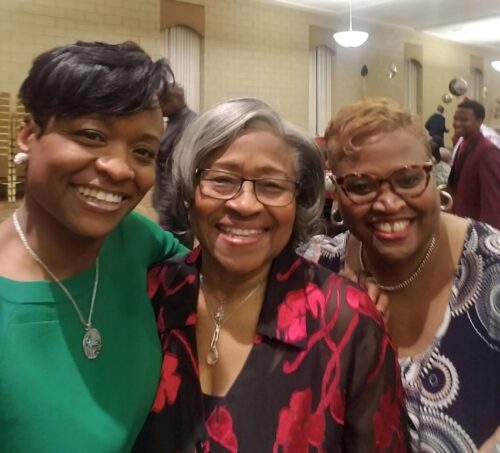
What a wonderful group of women! With the knowledge that we all have a limited supply of oil, how did you decide to dedicate your energy to lighting the way with us here at United Way?
My involvement with United Way began in 1990 when I volunteered at SOS Crisis Center (now SOS Community Services).I volunteered to be part of the Speakers Bureau.I would go talk to companies during campaigns. I would share the stories of what I did as a volunteer and how I helped people. Being on the crisis line, you are working with people who were experiencing grief and loss, who were contemplating suicide, who just needed to have somebody at the end of the day say to them, “Well, you did good, you have a good night’s rest.” We were a touchstone for them, and so being able to tell others what that meant to a person was something that I didn’t mind doing. Also, I donated to the United Way. I’ve always donated to United Way. A few years ago, I was asked if I would be the campaign co-chair for Michigan Medicine. Because of the work I was doing in community, it seemed like a good alignment. I’ve partnered with Pam Smith, who is the former president and CEO of the United Way of Washtenaw County. We collaborated on different events and activities, especially during the pandemic. I believe in working together with a common purpose to improve people’s life circumstances as best we can.
We have so appreciated being in partnership with you for the last three decades and your work volunteering at a crisis center is so admirable. Can you tell us more about how that volunteerism impacted your journey?
I volunteered at the crisis center for close to 15 years. On the first day, I went to orientation and the director said that the purpose of the crisis center was to empower people. He said, “If you feed a person a fish, the person will eat for a day, but if you teach a person to fish, they will eat for a lifetime.” In that moment, I made a commitment to be a teacher and make sure that the folks that I came in contact with would receive two things from me. First, I would live my own personal mission statement which is I never want a person to leave me feeling less than, only greater than, and second, I would make sure that they have the skills, confidence and knowledge to reach their highest potential. When I think about being in and giving back to community, it’s not so much of a give back, it’s a mutually beneficial exchange. Everyone I encounter I learn from and even though I may give them something, I’m getting back more than I gave.
You are truly a teacher! A personal mission statement is a great concept. Is that something that you would advise other people to develop, too?
Most definitely. I work with our nursing professional development program and one of the sessions I lead is Mission, Vision, and Values.This session is about understanding their values and then taking five of their values to create their own personal mission statement or personal leadership statement. Once it’s written, I recommend that they post it somewhere in their office where people can see it. It is an introduction to you and to what you believe in. I recommend it all the time because it becomes your north star. When you get flustered, that statement is there to reflect on to remind you of who you are and why what you do is important. You must have guiding principles. Mine began developing many, many, years ago and only now I have it down to one sentence. I encourage people to think about what is important to them and write it down for themselves as well as for others.
Really great advice! Did you always imagine yourself where you are now?
One of my favorite lines is from a John Lennon song that says “Life is what happens to you when you are busy making plans.” Did I plan any of this? I have meandered through life. There were things that I thought I would be, but my path was guided in a different direction. The one thing that I believe is that life unfolds as it is supposed to; that in this place and time is where I’m supposed to be, and these are the experiences that I am supposed to have. I believe that, for each of us, our path in life is ordained at birth. Our job is to just be prepared to walk into whatever greatness is supposed to be in our lives. So, all the experiences that I have both positive and negative are tuition that I paid for where I am today.
Wow, thank you for sharing. Lastly, we would love to hear how your family history impacts your feelings on giving back to the community.
Someone once asked me, “How do you walk into a room?” When I walk into the room, I enter with my ancestors. They are all behind me. The phrase often used is I am my ancestors’ best dream. I believe that I am. Some years ago, I had an experience that made me realize how important that was. University of Michigan Health System sent me to the Emerging Leaders program in Palm Desert Springs California that was done by Linkage Inc. In the plenary sessions, two of the speakers were Mikhail Gorbachev, former president of USSR, and Benazir Bhutto, former prime minister of Pakistan. I’m sitting there with these world leaders and I’m looking around remembering that in my family, I’m only fourth generation freed slave. My great-great grandfather started as a sharecropper before buying his own land. My family is from Alabama. They lived through the Great Depression, Jim Crow, Civil Rights Movement and here I am, sitting in this room. I believe that because of what I have been given, it is expected that I will give back. That’s what comes with the seat that I sit in, where I am at in the generations of my family. It’s not just about giving back to my family, but it is giving back to make whatever little corner of the world I live in a little bit better.
Well, thank you so much for making our corner of the world a much better place. We appreciate your time and willingness to share your story. We’re sure it will continue to help many others along their journeys.
